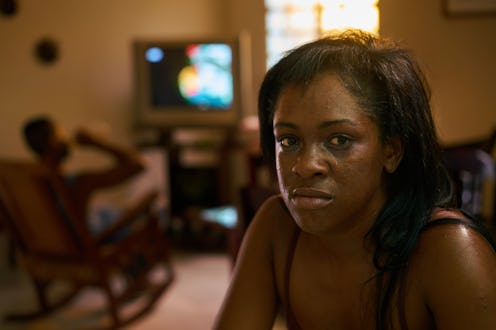
Every time a sexual assault case is spreading around the news, one question always seems to come up: Why do people blame victims? Why do the police, the media, lawyers, and onlookers ask what the victim could have done to prevent the assault rather than what we as a society can do to prevent people from assaulting? A new series of studies in the Personality and Social Psychology Bulletin illuminate what exactly leads people to victim-blame and how we can combat it.
The researchers presented people with descriptions of victims of various crimes, sexual and non-sexual, and asked to what extent they were "contaminated" and "injured." Unfortunately, people across the board viewed victims of sexual crimes as more likely to be contaminated, and the more "contaminated" they found them, the less "injured" they considered them, suggesting that they sympathized with them less. But the extent to which people considered all kinds of victims contaminated depended on their values.
Those who believed in "binding values" such as loyalty, obedience, and purity, which tend to be aimed toward keeping groups together, were more likely to victim-blame. Those who preferred “individualizing values" like caring and fairness, which focus on an individual's well-being, were less likely to do so.
Why might this be? The researchers explain in a New York Times article that people who hold binding values are more likely to view acts as immoral because of their inherent meaning rather than the impact they have on victims (for example, they may view flag burning as immoral even though it doesn't directly hurt anyone). They are also less likely to view acts as morally black and white. For example, they may be more likely to support sacrificing someone for the greater good.
Another study in the same paper had people read descriptions of rape and robbery and rate how responsible the victim was. Again, those who endorsed binding values were more likely to view victims as responsible for both types of crimes.
Since some people appear to be predisposed to victim-blaming, is there anything we can do to combat this predilection? The researchers tested this by having people read about crimes that were phrased in different ways that focused on either the victims or the perpetrators.
It turned out that reading a description like, “Lisa was forced by Dan,” where the victim was the subject of the sentence, was more likely to lead to victim-blaming than reading "Dan forced Lisa."
This finding is particularly interesting because it suggests that the way we talk about sexual assaults in the media can have a huge impact on how people view them. Coverage of sexual assault often use the passive voice — "a woman was raped," for example — which makes it seem like the rapist was not involved in the incident. If we phrased it as "a man raped a woman," for instance, we may be more likely to hold him accountable.
In their New York Times article, the authors present a conclusion similar to what a lot of feminists have been saying all along: "Focusing less on victims and more on perpetrators — 'Why did he think he had license to rape?' rather than 'Imagine what she must be going through' — may be a more effective way of serving justice." Not to mention, it would lead to more compassion.